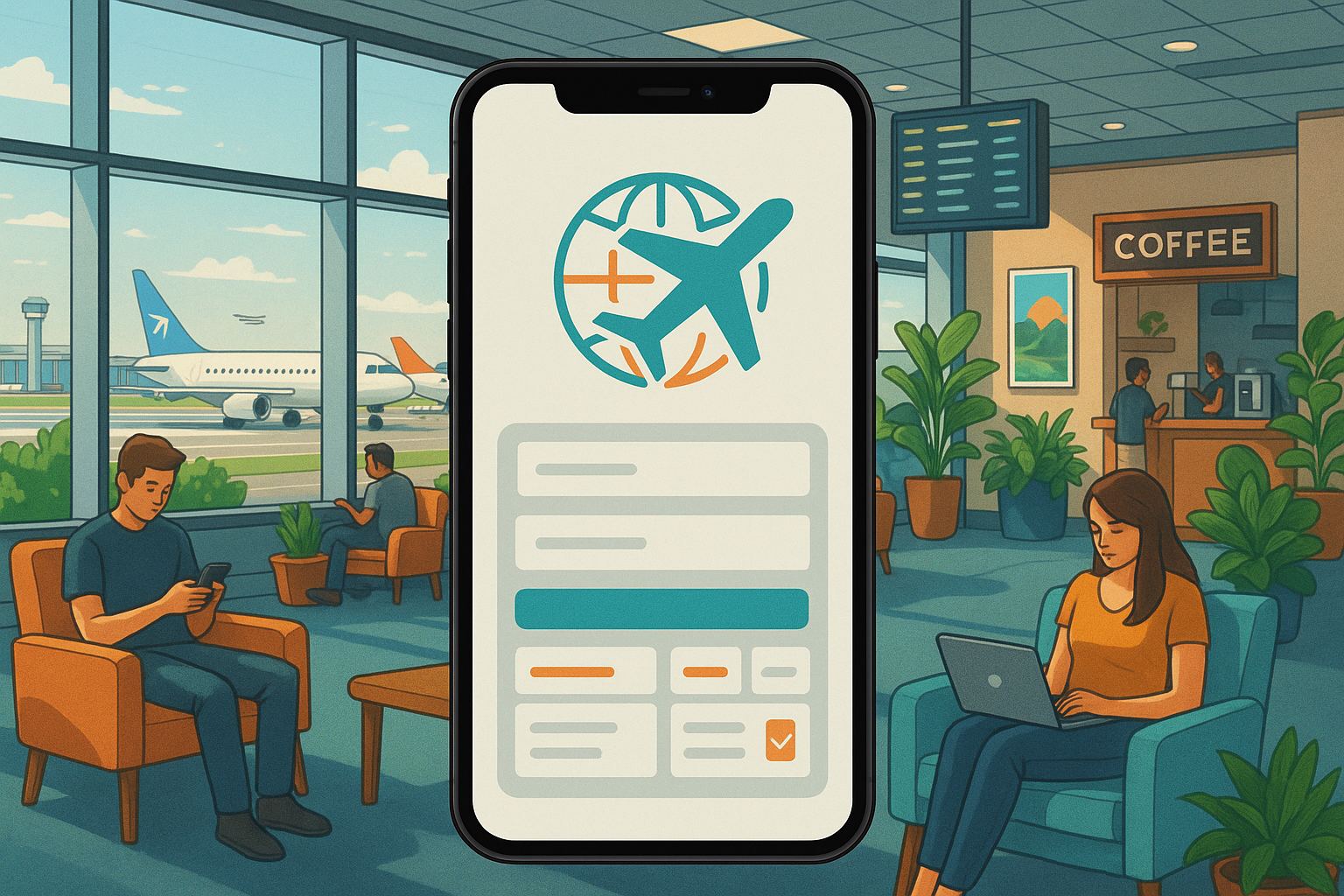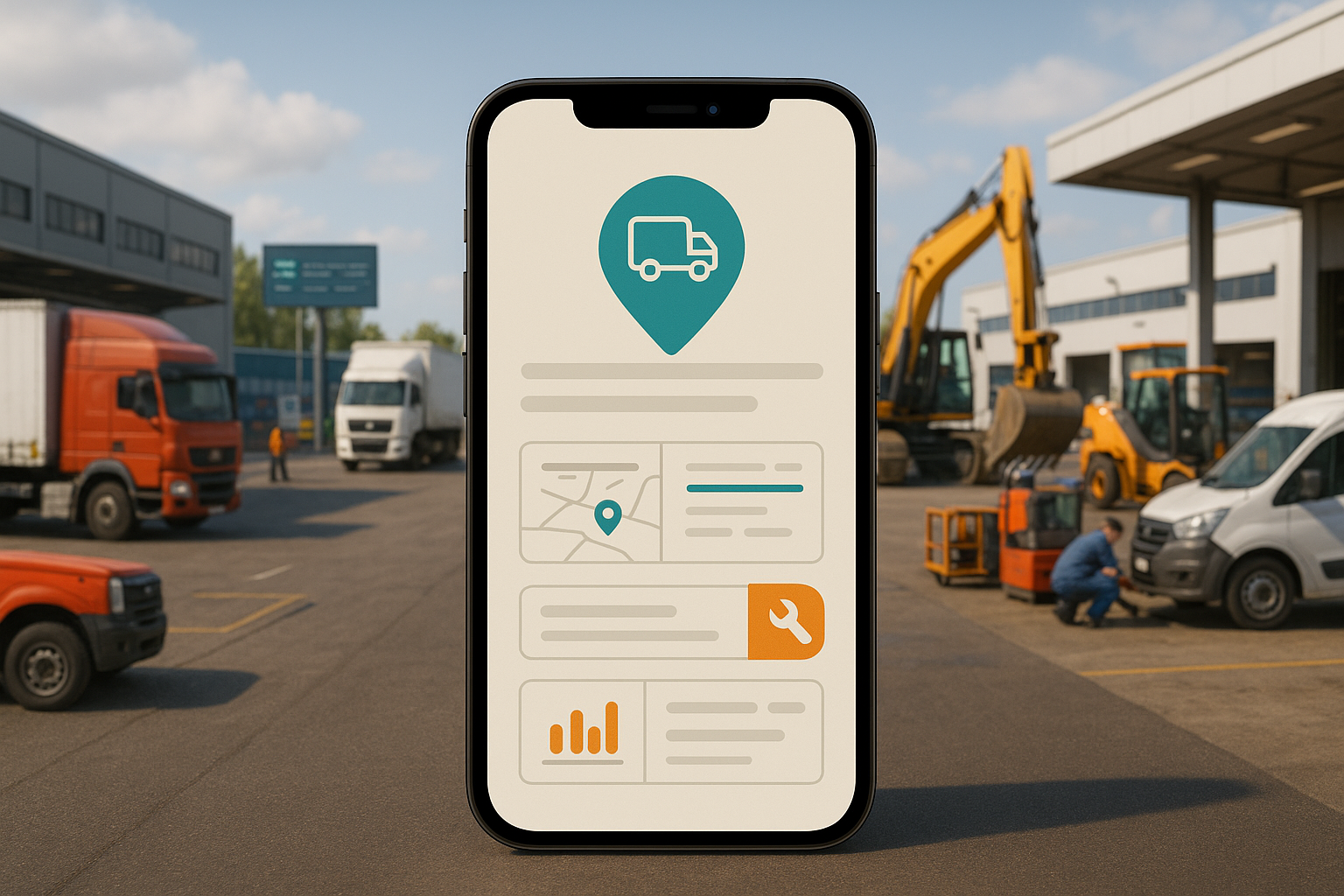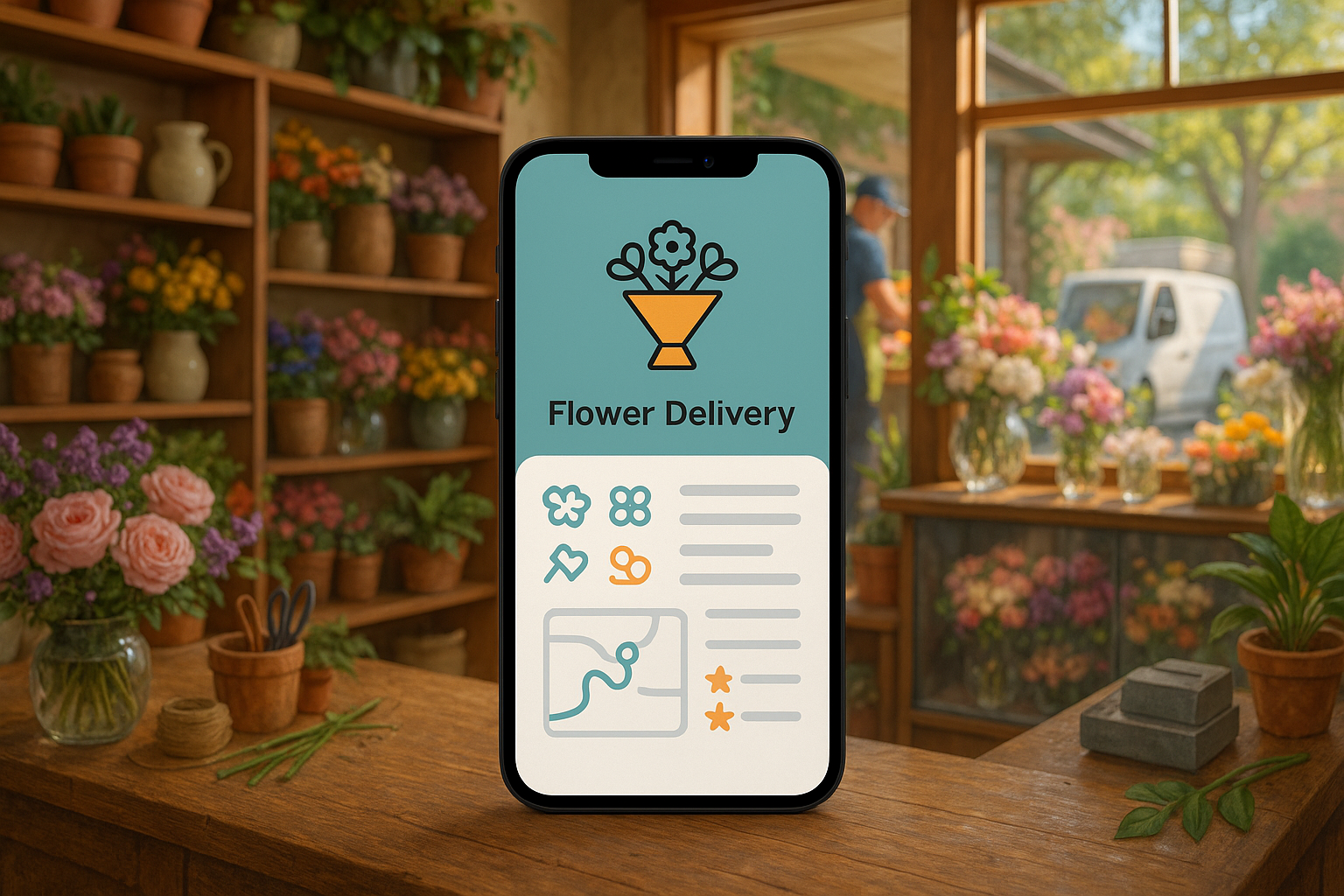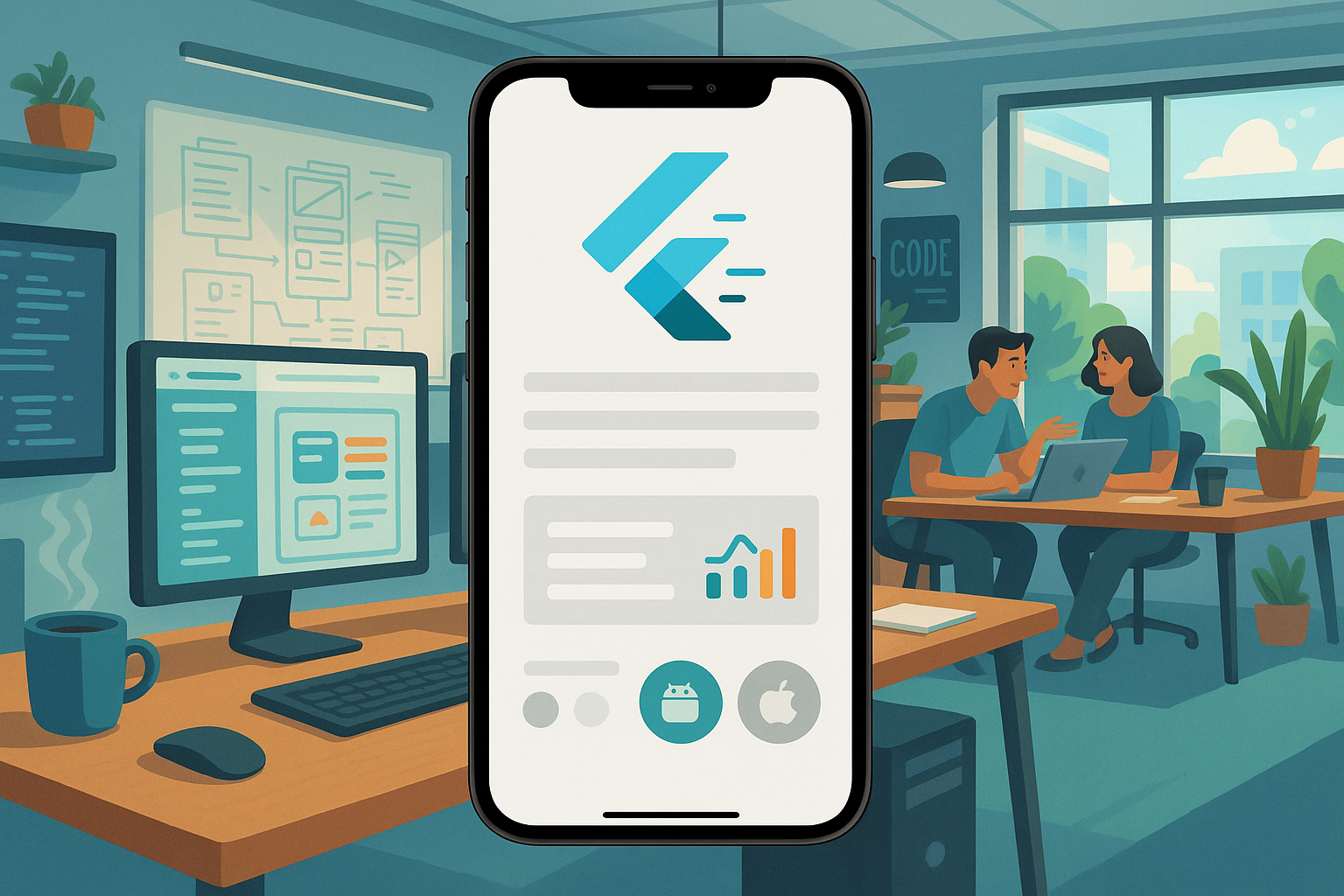Introduction
In today’s digitally-driven world, the travel industry has been completely transformed by mobile technology. Flight booking apps are no longer a novelty; they are an essential tool for modern travelers, offering convenience and control right at their fingertips. However, for businesses looking to enter this lucrative market or expand their existing services, the path to launching a successful flight booking app is fraught with complexity. The development process involves much more than just a slick user interface; it requires navigating a labyrinth of intricate API integrations, stringent regulatory standards, and ever-shifting customer expectations.
Developing a flight booking app in-house can quickly become a monumental task, draining resources and derailing timelines. The technical hurdles, from ensuring real-time data accuracy to building a seamless, end-to-end booking experience, demand a level of specialized expertise that most companies do not possess. This is where a strategic partnership with an expert development firm becomes invaluable.
This article serves as a comprehensive guide to flight booking app development. We will explore what these apps are, dissect the significant challenges that make them difficult to build, differentiate between the various types of apps on the market, and provide a detailed breakdown of the associated development costs. Furthermore, we will introduce you to top development companies that can bring your vision to life.
As a top US-based, AI-powered mobile app development firm with over 20 years of experience, we at MetaCTO specialize in turning complex ideas into market-ready applications. We understand the unique challenges of integrating flight booking functionalities. Whether you’re building a standalone travel app or adding booking features to an existing platform, our team has the deep technical expertise to handle everything from complex GDS API integrations to ensuring your app is secure, scalable, and compliant. We are here to help you navigate this complex landscape and build an app that is better than you could have imagined.
What is a Flight Booking App?
At its core, a flight booking app is a mobile application that allows users to search for, compare, and book flights directly from their smartphones or tablets. These apps act as a digital bridge, connecting travelers with a vast network of airlines and travel service providers. They centralize the often-fragmented process of travel planning into a single, convenient platform.
These applications are essentially a modern evolution of the travel agent. They function as intermediaries between travelers and the providers of travel services, which include not only airlines but also hotels, car rental companies, and tour operators. The primary function is to arrange and sell accommodations, transportation, tours, and complete trips through an online platform. In fact, for many people today, using an Online Travel Agency (OTA) app is the most common method for booking travel online.
The ecosystem of flight booking apps is diverse, but they generally fall into a few key categories that define how they operate and the value they provide to the user:
- A Centralized Platform: The fundamental value of a flight booking app is its ability to provide a central hub for all travel needs. Instead of visiting multiple airline websites, users can access a wide array of options in one place. This allows them to compare prices, schedules, and airline policies side-by-side, making for a more informed and efficient decision-making process.
- Intermediary Services: Most flight booking apps operate as third-party agents. They don’t own the airplanes or hotels; instead, they sell these services on behalf of the providers. This model allows them to offer a much broader selection of options than any single airline or hotel chain could.
- Comprehensive Travel Solutions: The most successful apps go beyond just flights. They aim to be a one-stop-shop for the entire travel experience. This means integrating hotel bookings, car rentals, vacation packages, and local activities. By offering a complete, end-to-end solution, these apps prevent customers from needing to juggle multiple platforms to plan a single trip.
The journey of the flight booking app began with the rise of the internet. The first-ever OTA, Travelocity, launched in 1996, pioneering a new way for people to book travel. Since then, the market has exploded with innovators who built strong digital products first and later added human agent support as an additional benefit. Today, a flight booking app is an indispensable tool for anyone looking to travel for business or leisure.
Reasons That it is Difficult to Develop a Flight Booking App In-House
While the concept of a flight booking app seems straightforward, the reality of its development is incredibly complex. Building a robust, reliable, and user-friendly travel app in-house presents a series of formidable challenges that can overwhelm even experienced development teams. These difficulties stem from technical intricacies, regulatory requirements, and the high expectations of today’s users.
The Challenge of GDS and API Integration
The heart of any flight booking app is its connection to the Global Distribution System (GDS) and various other APIs that provide flight data, availability, and pricing. This integration is notoriously difficult for several reasons:
- Incomplete API Knowledge: Simply “plugging in” a flight booking API is not a solution. These APIs are complex systems with their own unique protocols, data structures, and functionalities. An in-house team without deep, specialized knowledge of travel industry APIs will struggle to use them effectively. This lack of expertise can lead to a buggy app, poor performance, and a frustrating user experience. It’s not enough to integrate the API; one must master it.
- Outdated Data and Inaccurate Pricing: The travel market is incredibly dynamic, with prices and availability changing by the second. A flight booking app is only as good as its data. If the app displays outdated information or inaccurate pricing, it will quickly lose customer trust and business. Ensuring real-time data synchronization with GDS and airline systems is a constant technical challenge that requires sophisticated architecture and continuous monitoring.
- Complex and Lengthy Booking Processes: The user’s booking journey must be simple, intuitive, and fast. However, the underlying API from a chosen provider can sometimes dictate a convoluted process. A poorly implemented API integration can result in a booking flow with too many steps, confusing options, or slow loading times, all of which are major drivers of customer abandonment.
- Lack of Automation: Modern travel portals rely heavily on automation, which is facilitated by powerful APIs. Without proper automation for tasks like ticketing, payment processing, and confirmation delivery, a business is exposed to unexpected errors, manual data entry mistakes, and lost bookings. Building and maintaining these automated workflows requires significant engineering effort.
Broader Business and Regulatory Hurdles
Beyond the technical API challenges, developing a flight booking app involves navigating a complex business and legal landscape.
-
The Need for Comprehensive Services: Today’s travelers expect more than just flight booking. They want an all-in-one travel solution. This means a successful app must integrate various services, including flights, hotels, car rentals, and local activities. Building a platform that seamlessly combines these disparate services, each with its own API and set of suppliers, is a massive undertaking. It requires creating a cohesive end-to-end experience that prevents users from needing to switch to other platforms.
-
Strict Legal and Regulatory Compliance: The travel industry is heavily regulated, and handling customer data—especially payment information—comes with serious legal obligations. Travel agencies and app developers must comply with a host of standards, including:
- Payment Card Industry Data Security Standard (PCI-DSS): For securely handling credit card information.
- Data Privacy Laws: Such as the General Data Protection Regulation (GDPR) in Europe and the California Consumer Privacy Act (CCPA) in the United States.
Failure to comply with these regulations can lead to severe legal penalties, hefty fines, and irreparable damage to a company’s reputation. Navigating this legal minefield requires specific expertise that is often outside the scope of a standard development team.
Hiring an experienced development agency like us at MetaCTO mitigates these risks. We bring the specialized knowledge required to handle complex API integrations, build scalable and automated systems, and ensure your application meets all legal and regulatory standards from day one. Our experience in Custom Mobile App Development allows you to focus on your business while we handle the intricate technical and compliance challenges.
Different Types of Flight Booking Apps
The world of flight booking apps is not monolithic. Different types of applications serve distinct purposes and cater to different user needs. Understanding these categories is crucial for any business looking to enter the market, as the chosen model will define the app’s functionality, target audience, and business strategy. The primary types are Online Travel Agencies (OTAs), Travel Aggregators, and specialized Travel Management Companies (TMCs).
Online Travel Agencies (OTAs)
Online Travel Agencies are the most prevalent and widely recognized type of flight booking platform. They are digital storefronts that act as third-party agents, selling a wide range of travel services on behalf of providers.
- Functionality: OTAs provide a comprehensive platform where users can search, compare, book, and pay for various travel arrangements. They offer services from airlines, hotels, car rental companies, and tour operators, all integrated into one user-friendly interface. Many well-known travel platforms, such as Booking.com and Expedia, act as both travel agencies and tour operators, bundling services into packages.
- Business Model: OTAs are web-based intermediaries. Their core business is to connect travelers with service providers. Most OTAs that started in the early days of the internet, like Travelocity (the first of its kind in 1996), began with a strong digital product and later added agent support as a supplementary service.
- Audience: OTAs serve a broad audience. Some are exclusively customer-facing (B2C), focusing on leisure travelers. Others, like Booking.com, have arms that service both individual consumers (B2C) and other businesses (B2B).
Travel Aggregators
Travel aggregators, also known as metasearch engines, operate on a different model than OTAs. Instead of selling travel services directly, they consolidate travel offers and prices from hundreds of other sources, including OTAs and airline websites, and present them in one place.
- Functionality: The primary goal of an aggregator is to help users find the best possible price. They crawl the web for flight and hotel deals and list the results, allowing users to compare prices from various sellers for the same flight or room. When a user decides to book, they are typically redirected from the aggregator’s site to the OTA or airline’s website to complete the purchase.
- Examples: Some Travel Management Companies (TMCs) like BCD function as powerful aggregators for their corporate clients. They combine content from the Global Distribution System (GDS) with inventory from major OTAs like Expedia and Booking.com, offering a comprehensive set of options through a single mobile app or website. Similarly, AMEX’s proprietary booking tool, KDS, serves as a travel aggregation tool for its users.
Travel Management Companies (TMCs)
While OTAs are often associated with leisure trips and holidays, a specialized category known as Travel Management Companies (TMCs) serves the corporate world.
- Functionality: TMCs have the same core functionality as traditional OTAs—allowing users to book flights, hotels, and other travel services. However, they are designed exclusively with business travelers in mind. They often include features tailored to corporate needs, such as policy compliance tools, expense reporting integrations, and dedicated agent support for complex itineraries.
- Audience: The target market for TMCs is companies and businesses, not individual leisure travelers. Platforms like GetGoing and Travel Perk are examples of modern TMCs that provide an OTA-like experience tailored for the corporate sector. They streamline the process of booking and managing business travel, ensuring that employees adhere to company travel policies and budgets.
Cost Estimate for Developing a Flight Booking App
Determining the cost of developing a flight booking app is one of the most critical steps in planning your project. The final price tag is not a single number but a range influenced by a multitude of factors. Understanding these variables will help you set a realistic budget and make informed decisions about your app’s scope and features.
The single most significant factor that dictates the overall cost is the app’s complexity. A simple app with minimal features will naturally cost less than a highly sophisticated platform with numerous integrations and advanced functionalities.
Here is a general cost breakdown based on complexity:
- Simple Flight Booking App: An app with basic features like user registration, flight search, simple filtering, and a standard booking process. The estimated average development cost for such an app is $40,000 to $60,000.
- Moderately Complex Flight Booking App: This includes everything in a simple app, plus additional features like advanced sorting and filtering, multiple payment gateway integrations, fare alerts, and integration with hotel or car rental APIs. The estimated cost ranges from $60,000 to $100,000.
- Highly Complex Flight Booking App: A feature-rich application that may include AI-powered recommendations, dynamic pricing models, a comprehensive loyalty program, multi-currency support, chatbot assistance, and integrations with various third-party services for a complete travel experience. The cost for a highly complex app typically falls between $100,000 and $200,000, and can go higher.
Key Factors That Influence Development Cost
Beyond the general complexity, several specific elements contribute to the final cost:
1. UI/UX Design
A polished and intuitive user interface is non-negotiable for a successful app. The cost of UI/UX design is affected by:
- Visual elements, typography, and color psychology: Creating a unique and appealing brand identity.
- Branding and content writing: Crafting a cohesive look and feel with compelling copy.
- UI optimization and button placements: Ensuring the user journey is seamless and efficient.
- Testing and QA: The number of testing tools used and quality assurance iterations carried out to ensure the design is flawless across all devices.
2. Features and Functionality
The list of features integrated into the app directly correlates with its cost. The more features you add, the more development hours are required, thus increasing the overall price.
3. Platform Selection
The choice of development platform significantly impacts the budget.
- iOS, Android, or Cross-Platform: Building native apps for both iOS and Android separately is typically more expensive than developing a single cross-platform app. However, native apps often offer superior performance and a better user experience.
4. Development Team Location and Hourly Rates
The location of your software development partner has a direct and substantial impact on cost due to varying hourly rates. Hiring freelancers may seem cheaper initially, but an experienced agency often provides more value and reliability. Here’s a comparison of typical hourly development rates by region:
| Region | Average Hourly Rate |
|---|---|
| US | $95 - $100 |
| Western Europe | $80 - $90 |
| Australia | $70 - $90 |
| UAE | $60 - $65 |
| Eastern Europe | $50 - $55 |
| Asia | $25 - $40 |
5. Ongoing Maintenance and Upgrades
The development cost doesn’t end at launch. You must also budget for ongoing maintenance, which includes app upgrades, bug fixes, server costs, and implementing new technologies to stay competitive. This is a crucial component of the total cost of ownership.
At MetaCTO, we help our clients navigate these cost factors by offering flexible solutions like our Rapid MVP Development service, which allows you to launch a core version of your app quickly to test the market and attract investors before committing to a full-scale, highly complex build.
Top Flight Booking App Development Companies
Choosing the right development partner is arguably the most critical decision you’ll make when building a flight booking app. The right company brings not only technical skills but also industry experience, strategic insight, and a proven track record of success. Here are some of the top companies in the space, who can help you build a world-class application.
1. MetaCTO
As a premier, US-based mobile app development agency, we at MetaCTO are experts in transforming ambitious ideas into successful, market-leading applications. With over 20 years of experience and more than 120 successful projects launched, we specialize in building, growing, and monetizing complex mobile apps, making us the ideal partner for your flight booking app project.
What sets us apart is our deep expertise in handling the very challenges that make flight booking apps difficult to build. We excel at:
- Complex API Integration: We have the specialized knowledge to seamlessly integrate with GDS and other travel APIs, ensuring your app has access to accurate, real-time data for flights, hotels, and more. We don’t just connect APIs; we master them to create a fast and reliable user experience.
- AI-Powered Solutions: We leverage cutting-edge AI to make your app smarter. From developing custom chatbots for customer support to implementing advanced machine learning models for personalized travel recommendations, our AI Development services can give you a significant competitive edge.
- Rapid MVP Development: We understand the importance of speed to market. Our 90-day MVP service allows you to launch a functional, streamlined version of your app quickly. This approach helps you validate your concept, gather real user feedback, and secure investor funding while keeping initial costs low.
- End-to-End Partnership: We are with you every step of the way, from initial concept and strategy to design, build, launch, and beyond. We handle the entire process, including post-launch growth and monetization strategies, to ensure your app not only launches successfully but also thrives in the long run. Our 5-star rating on Clutch is a testament to the trust our clients place in us.
2. Orangesoft
Orangesoft is another prominent development company known for its work in the travel sector. They were a key partner in the development of TripMate, a successful travel app that showcases their capabilities in creating comprehensive travel solutions.
- Proven Track Record with TripMate: Orangesoft’s work on TripMate demonstrates their ability to build feature-rich travel apps. TripMate integrated flight bookings, hotel reservations, detailed itinerary planning, and real-time travel updates into a single, intuitive platform.
- Focus on Results: The launch of TripMate delivered impressive results, including a 40% increase in user engagement within the first three months and a 25% boost in in-app bookings, driven by its intuitive interface.
- Robust Development Process: Orangesoft emphasizes a rigorous development methodology. Their dedicated QA team runs extensive tests to ensure the app performs reliably under load. Furthermore, their commitment to post-launch monitoring allows them to resolve issues quickly and iteratively add new features based on user feedback. They provide launch-ready MVP development with a focus on continuous improvement.
Conclusion
Embarking on the journey of flight booking app development is a significant undertaking, but one with immense potential rewards. As we’ve explored, creating a successful app requires more than just a great idea; it demands a deep understanding of the travel industry’s intricate ecosystem, from the various types of apps like OTAs and aggregators to the complex web of GDS and API integrations.
We’ve detailed the formidable challenges of in-house development—navigating real-time data accuracy, ensuring stringent regulatory compliance with standards like PCI-DSS and GDPR, and building a comprehensive, end-to-end user experience that keeps customers engaged. We’ve also provided a transparent breakdown of the development costs, highlighting how factors like complexity, features, and the location of your development team can significantly influence your budget.
Building a flight booking app is a specialized craft. The path is littered with potential pitfalls that can be costly in terms of both time and money. Partnering with an experienced development firm is the most effective way to mitigate these risks and ensure your project’s success. An expert team brings the technical prowess, industry knowledge, and strategic foresight needed to build a robust, scalable, and market-leading product.
If you are ready to turn your vision for a flight booking app into a reality, don’t go it alone. Leverage our 20 years of experience in building and launching successful mobile applications. Talk with a Flight Booking expert at MetaCTO today to discuss how we can help you integrate powerful booking capabilities into your product and build an app that soars above the competition.






